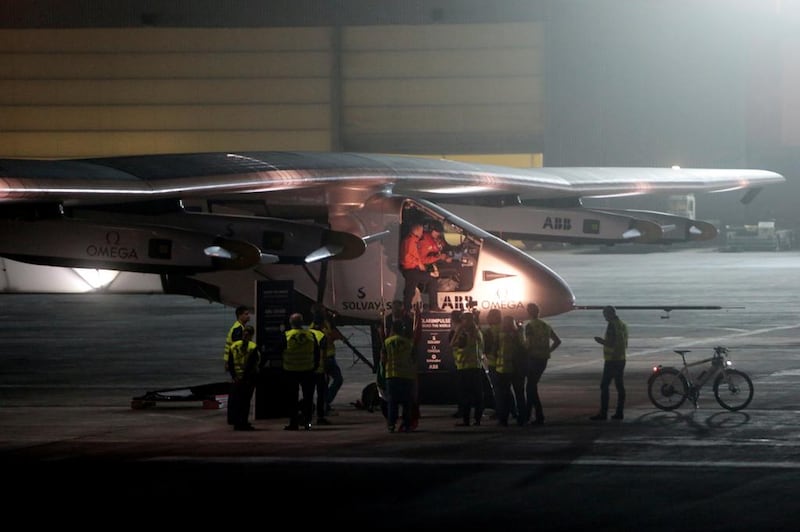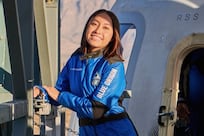ABU DHABI // The daily recommended eight hours of sleep is a luxury the Solar Impulse pilots will be unable to afford when they make their five-day journey across the Pacific Ocean.
Theoretically, the aircraft is capable of flying indefinitely as long as there is sun. However, the pilots, Andre Borschberg and Bertrand Piccard, cannot, as they require food, water, oxygen and, not least of all, sleep.
“We have an airplane that is completely sustainable in terms of energy,” Mr Borschberg said. “The question is, with only one pilot on the plane, we need to make him sustainable as well.”
Although the project has two pilots capable of manning the aircraft, the cockpit only has room for one.
“The great challenge we have is these long-duration flight that nobody does because usually there are two pilots in one cockpit, one can rest and one is in control,” he said.
This means that whoever makes the transoceanic trip, either across the Atlantic or across the Pacific, will have to do without normal rest.
“So the first question is how to get to sleep very quickly and the way we did it is to use meditation and breathing techniques to get away the stressful thoughts,” Mr Borschberg said. “So I could calm my heartbeat and really sleep in a few minutes.”
But the pilots are not using the same technique. Mr Piccard is planning to use self-hypnosis, whereby he counts and stares at his thumb.
Either way, both techniques calls for the pilots to fall asleep quickly, and they will need it. They have only a 20-minute window to rest.
“This is not much, so he has to be really focused on his different tasks on the plane even with a few days with very short sleep,” said Dr Raphael Heinzer, a sleep specialist at CHUV.
The pilots are scheduled to take 20-minute naps throughout the day because the plane cannot be left unattended any longer than that.
When added up, it amounts to two or three hours of sleep a day, or about 15 hours for the entire trip. Typically the human body begins to suffer after 24-hours of sleep deprivation. A University of California, San Diego study shows that sleepier subjects displayed more activity in the prefrontal cortex, or an area of the brain responsible for memory and reasoning. This was interpreted to show that the sleepier the person was the harder it was to do simple tasks — let alone fly a fuel-less plane.
“We learnt how to rest for very short periods of times, we developed techniques to rest without sleeping, sometimes we use yoga, meditation and breathing techniques,” Mr Borschberg said.
Food will come easier. Nestle Research is providing 2.4 kilograms of food and 2.5 litres of water per day.
“We developed special food because the temperature of the cockpit will vary between -20°C to +35°C,” Mr Borschberg said.
The food has to be developed specifically to withstand these extreme temperature while also providing the men with necessary nutrients.
____________________________________________________________
About this package:
The solar-powered Solar Impulse 2 plane took off at 7.15am on Monday morning for Muscat, in its first leg of the journey before continuing on to India and subsequently around the world. The two-man team, comprised of pilots Andre Borschberg and Bertrand Piccard, will alternate duties throughout the 12 legs. There is only room for one pilot in the cockpit, so the sole pilot must be self-reliant throughout their journeys. The Swiss pilots will have to alternate 20-minute windows of sleep adding up to just three hours of sleep a day, or 15 hours for the entire trip. Specific food has also been developed to provide the men with necessary nutrients while withstanding the significant changes in temperature. Travelling alongside the Solar Impulse team is Mubadala employee Hasan Al Redaini, 25, who will also assist in the coordination of lectures and demonstrations intended to educate communities from each of the 12 countries about solar energy.
More on the Solar Impulse flight:
■ Solar Impulse 2 takes off from Abu Dhabi for first leg of its round-the-world flight
■ Emirati to travel the world with Solar Impulse team
nalwasmi@thenational.ae






